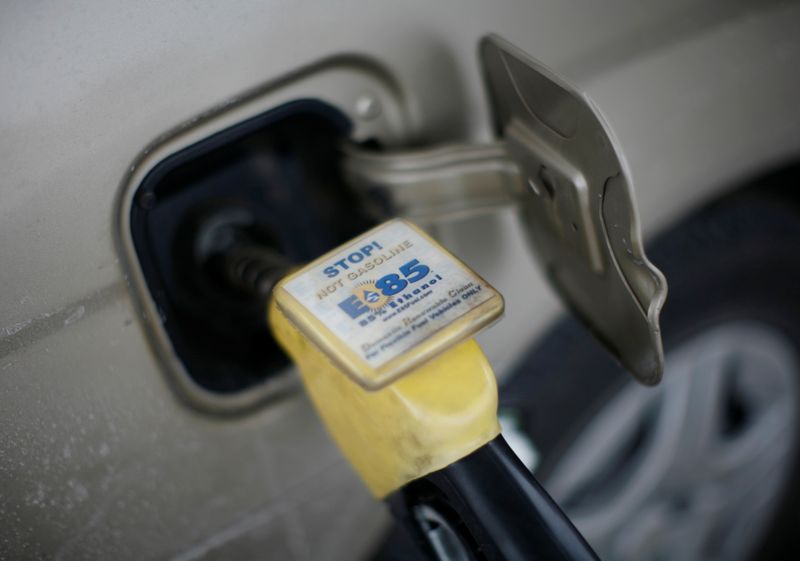By Stephanie Kelly and Humeyra Pamuk
NEW YORK (Reuters) - The U.S. Environmental Protection Agency awarded Sinclair Oil Corporation waivers that exempt both its refineries in Wyoming from biofuel blending requirements for the 2019 compliance year, two sources familiar with the matter said, making it the only company to have received exemptions for that year so far.
The EPA had announced it granted two 2019 waivers to refining facilities on Tuesday night, hours before the departure of the administration of President Donald Trump, but did not identify the recipients. Some 30 other waiver applications for that year remained unanswered.
The two waivers went to the 85,000 barrel-per-day Sinclair Wyoming refinery and the 30,000 bpd Sinclair Casper refinery, which is also in Wyoming, the sources said, asking not to be named discussing the matter.
The EPA also granted a waiver to a refining facility for the 2018 compliance year, but it was unclear who the recipient was, the sources said.
Representatives for the EPA and for privately-held Sinclair did not immediately comment.
The announcement marked one of the last moves by the EPA under Trump and drew criticism from both the biofuel industry, which opposes such exemptions, and the oil industry, which said the agency left too many lingering exemption issues unanswered.
The so-called Small Refinery Exemption program is a part of the U.S. Renewable Fuel Standard (RFS), which requires refiners to blend billions of gallons of biofuels into their fuel mix, or buy credits from those that do. Refiners can apply for an exemption if they average 75,000 bpd of throughput or less and can prove the blending requirements would do them financial harm.
The waiver program has been at the center of a heated battle between the oil and biofuel industries since Trump came into office and vastly expanded the number of exemptions granted annually to refiners.
The biofuel industry and farmers say the waivers hurt demand for products like corn-based ethanol, while the oil industry rejects that and says the exemptions are needed to keep small refiners in business.
It is not yet clear how the Biden administration will handle the waiver program.
In January 2020 the 10th Circuit Court of Appeals ruled in a case launched by the biofuel industry that the EPA can grant exemptions only to refining facilities that have received them continuously each year since 2010.
That decision cast doubt over the entire waiver program since the refining industry says only two refineries have continuously received the exemptions for a decade.
The refining industry successfully convinced the Supreme Court earlier this year to consider the case. That hearing has not yet been scheduled.
It was not immediately clear whether Sinclair has continuously received such waivers since 2010, or what circumstances led to it securing the 2019 exemptions.
Sinclair's refineries did not receive an exemption for the 2013 compliance year, according to a filing in March from rival Wynnewood Refining Company. And it had not received one for 2018 as of 2019, according to a petition it filed with the EPA. It was not immediately clear whether it had secured either since.
The U.S. Court of Appeals for the D.C. Circuit ruled on Thursday that the EPA's action to grant the three waivers this week must be stayed after an emergency motion filed by the Renewable Fuels Association on Tuesday challenged the agency's efforts to process them.
There are still 32 pending waiver applications from refiners for the 2019 compliance year and 44 pending applications for the 2018 compliance year, according to EPA's website.
